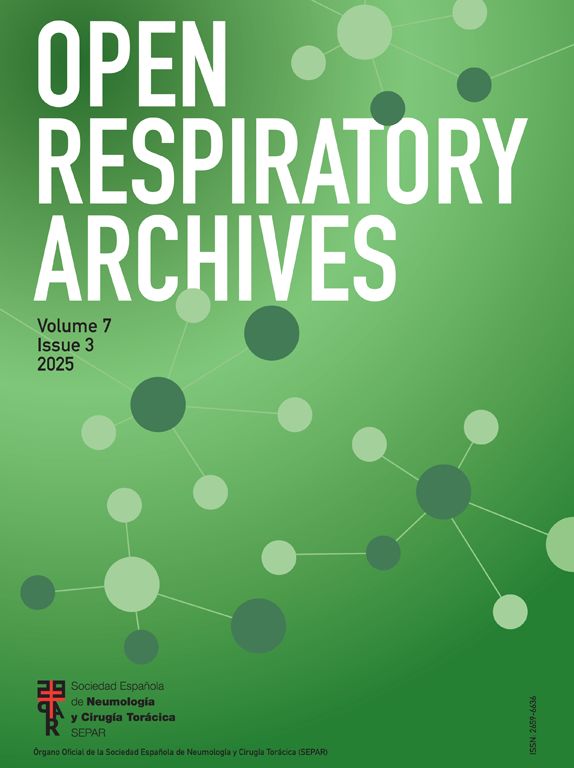In chronic obstructive pulmonary disease (COPD), symptom reduction (relief of dyspnea and improvement in exercise tolerance or in the patient's health status) and minimization of future risk (reduction of exacerbations, slowing of disease progression and reduction of mortality) are the main objectives to be achieved. Factors such as comorbidity, adherence to treatment or the presence of respiratory infections (in particular viral infections) will influence the achievement of this goal. After the COVID-19 pandemic, there has been great interest in knowing the medium- and long-term impact of SARS-CoV-2 infection. To date, we know that long COVID has respiratory, cardiovascular, neurological, gastrointestinal and musculoskeletal implications.1 Both SARS-CoV-2 and influenza are two very relevant respiratory infections in patients with chronic respiratory pathology due to their high morbimortality, but the truth is that they differ in the magnitude of their clinical impact in the medium to long term. Studies carried out in subjects who have been hospitalized for one of these viruses have shown that those infected by SARS-CoV-2 (periods in which infections by both pre-delta and delta variants and omicron were included) have a higher mortality, greater systemic involvement and a higher risk of readmission than those infected by the influenza virus.2
Compared to the general population, COPD patients have shown a greater susceptibility to SARS-CoV-2 infection and a worse evolution both in the acute phase and during convalescence. Classically, it has been estimated that most COPD patients who have suffered an exacerbation reach their baseline situation three months after the episode, but it is quite possible that this premise does not hold true in patients who have suffered a SARS-CoV-2 exacerbation.3 Data obtained from the (PHOSP-COVID)4 study concluded that after hospitalization for COVID-19, subjects with a history of respiratory pathology (including patients with COPD) were less likely to recover their preinfection baseline clinical status compared to those subjects with no history of obstructive airway pathology after one year of follow-up (22% vs. 33%, respectively). A cohort study by Kwok et al.5 with a follow-up of more than one year showed that COPD patients who had overcome a SARS-CoV-2 exacerbation, and especially those who required hospital admission, were more prone to suffer new exacerbations requiring hospital admission, a worsening of their baseline dyspnea and higher mortality compared to COPD patients who were not infected by this virus. The reason for this worsening is uncertain. Several hypotheses have been suggested for its pathogenesis, including the persistence of SARS-CoV-2 reservoirs in tissues, immune dysregulation, alteration of the microbiota, pro-coagulant states at the microvascular level, or dysfunctional signaling at the brainstem and/or vagus nerve level, among others. Whatever the mechanism, exacerbation of COPD by SARS-CoV-2 infection could produce a prolonged clinical impact, impairing long-term control of the disease. Although more studies are needed to directly compare SARS-CoV-2 exacerbation with other etiologies, as well as the impact of vaccination, the type of variant, severity of the process or treatment administered among others on the development of long COVID in this particular group of patients, the works published to date suggests that we should not trivialize COPD exacerbation by SARS-CoV-2 because it could imply a disproportionately high risk of loss of future disease control. If this hypothesis is confirmed, it would be justified to investigate whether a differentiated treatment and follow-up of COPD exacerbation by SARS-CoV-2 should be established.
FundingNo funding was provided for the preparation of this manuscript.
Authors’ contributionsAll authors have contributed intellectually, comply with the conditions of authorship and have approved the final version.
Conflicts of interestThe authors declare that they have no conflicts of interest.





